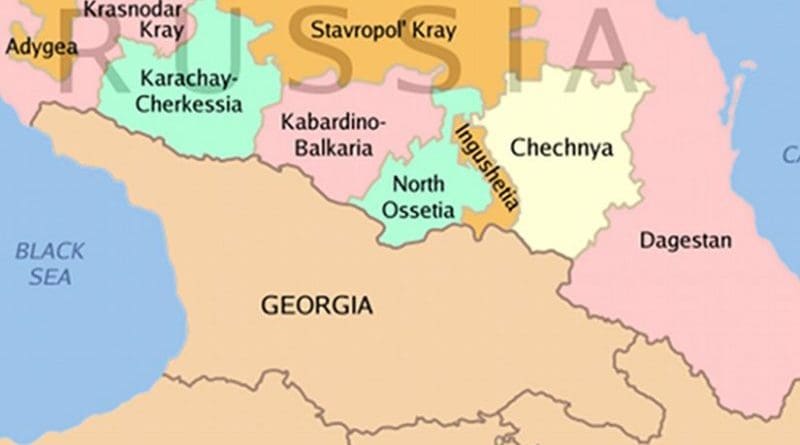Poverty, Ethnicity And Inflation Seen Triggering New Explosions In North Caucasus – OpEd
By Paul Goble
At the present time, the Telegram channel Mysli-NeMysli says, the horrific economic situation in the republics of Russia’s North Caucasus are “a social bomb” that may go off at any time given that old ethnic grievances are combining with rising gas prices and loose talk in Moscow about regional amalgamation to push people into the streets.
The channel points to the fact that the very poorest places in the Russian Federation are in the North Caucasus, with Kabardino-Balkaria, Daghestan, Chechnya, and Karachayevo-Cherkessia at the very bottom and North Ossetia only a little better in all-Russian rankings (t.me/mislinemisli reposted at charter97.org/ru/news/2018/9/20/305994/).
Because of rising prices for gas and food, the channel continues, “social tensions have sharply increased.” They may draw additional power from longstanding ethnic grievances, disputes over land, or talk in Moscow about redrawing borders in some regional amalgamation plan; but the economic problems are the primary driver.
The channel points to Kabardino-Balkaria as “the hottest situation” given new clashes between the Circassian Kabards and the Turkic Balkars over historical symbols and land and the apparent inability of the Circassian-dominated republic authorities to cope with the situation and thus compelled to turn to the center for troops.
Relations between Chechnya and Ingushetia are rapidly deteriorating as well because of a territorial dispute over their common border. The leaders of the two are trying to hold things together and prevent more violence, the channel says; but many in the populations of the two republics are extremely angry. Similar problems affect North Ossetia.
But instead of addressing these problems and especially the level of poverty across the North Caucasus, officials in Moscow are taking steps that will only add fuel to the fire and quite possibly cause the kind of violence, official and unofficial, that will lead the situation to spiral out of control.
On the one hand, the Mysli-NeMysli channel says that “the Kremlin is going to push forward the ideal of amalgamating regions, a step which could enflame the entire Caucasus,” given that each of the current republics would see itself as a potential loser if it were to be enveloped in some larger and likely ethnic Russian region.
And on the other, Moscow officials, as the URA news agency reports, are increasingly blaming outside agitators in the form of US-backed NGOs for the violence in the region instead of facing up to the real problems of poverty and often ancient ethnic animosities on the ground (ura.news/articles/1036276276).
Frants Klintsevich, deputy chairman of the Federation Council’s defense and security committee, blames the clashes earlier this week in Kabardino-Balkaria not on local issues but rather on the US which he says has “created an enormous number of NGOs” nominally to promote democracy but in fact to achieve “the disintegration of Russian regions.”
In Soviet times, the West focused on destroying the USSR by promoting ethnic protests in the union republics; now, it is doing so in the non-Russian republics of the Russian Federation in order to destroy Russia by exploiting local problems in ways that will make the country ungovernable from Moscow.
Aleksey Martynov, the director of the Moscow Institute of Present-Day States, agrees. He says that “if earlier the West used the tactic of the complex destabilization of the system as was the case in Ukraine, with time, it came to the conclusion that for the disintegration of Russia it would be better to use the technology of destabilization in each separate region.”
By doing this in several places at once, he says, the West hopes to create “’a perfect storm’” that will ultimately overwhelm Moscow and lead to the coming apart of the Russian Federation.

